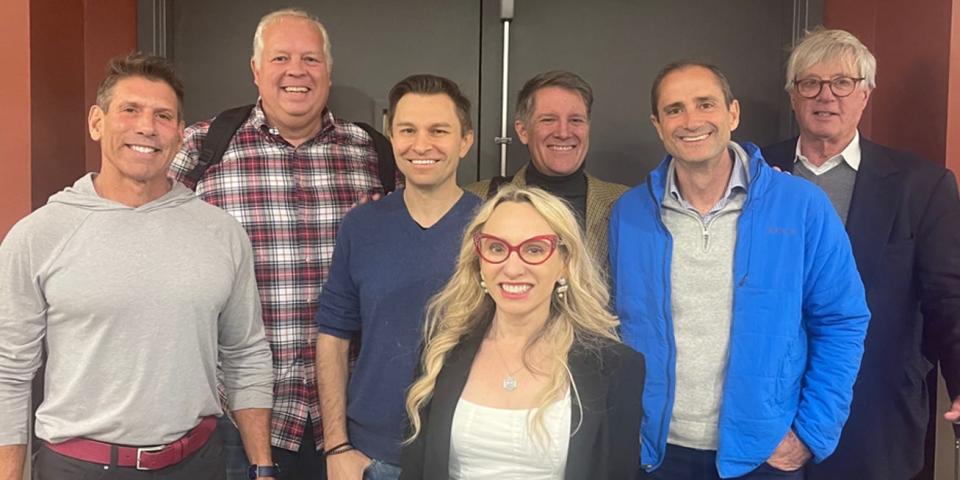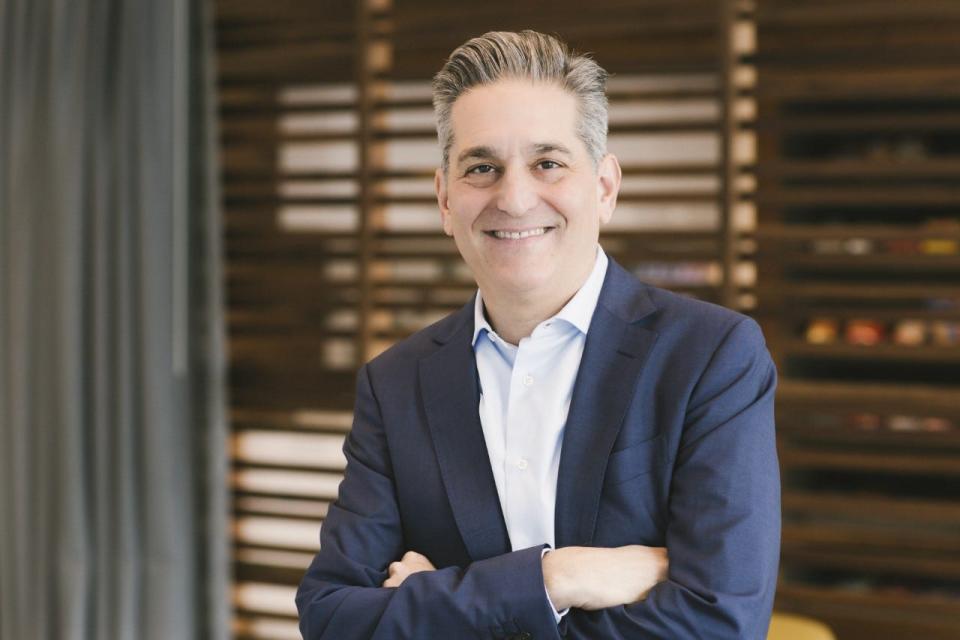Frustrated by healthcare's failings, the rich are investing in biotech to live longer and healthier

Tech titans like Sam Altman are investing in startups in the hopes of cheating death.
Other rich investors, driven by their own ailments and family deaths, are betting on biotech.
BI asked 4 longevity investors how they are investing and why.
Maximilian Winter was sick, and his doctors couldn't figure out why.
Then 23, the Santa Barbara-based engineering student struggled with brain fog and always felt tired, even if he slept 10 hours a night for a week. But despite this fatigue, Winter doggedly pursued a diagnosis and a cure. He was diagnosed with Lyme disease after seeing five doctors. It took two years for him to make a full recovery. After an initial course of antibiotics, he changed his diet and sleep routine, took up meditation, and resorted to hyperbaric oxygen chambers, UV blood filtering, and infrared saunas.
Winter isn't quite sure what was the silver bullet or if there even was one. He was able to afford these treatments thanks to a family fortune derived from German automobile part supplier Fritz Winter. Through his family office, he started investing in healthcare and life sciences in 2018, initially looking to help develop better treatments for Lyme disease but was drawn to deeptech startups that seek to 3D print organs and use AI for drug discovery. He spun off these investments into a fund that has deployed more than $20 million since 2021.
"They say entrepreneurs are people that end up solving their own problems that they experience themselves but also that a lot of people experience," Winter, now 34, told Business Insider. "I think that was true for me."
Winter is part of a growing group of family office principals, including heirs like himself and first-generation entrepreneurs, who are making direct investments in pursuit of longer and healthier lives. They are in good company; longevity startups drew global investment of more than $5.2 billion in 2022, according to a venture capital firm, Longevity Tech Fund, which used PitchBook data. Billionaires like Peter Thiel have made headlines for backing efforts to reverse aging at the cellular level.
But for many investors like Winter, the goal isn't to cheat death. Driven by their own health struggles or deaths of loved ones, they want to extend not only lifespan but more importantly our health span, or how many years you can spend free of chronic diseases or age-related ailments.
Winter thinks a health span of 90 to 120 years is "fairly reasonable" for him given the pace of medical advances. (There is only one documented case of someone living past 120). However, he is skeptical of the idea that scientific discoveries can outpace aging to enable people to live indefinitely.
"There's been a lot of hype around longevity. We haven't seen a lot of it materialize," he said. "I think the most credible approaches that we've seen are still in choosing specific conditions and things that really affect people in their old age and could either prevent it or they could treat it reactively."

Sorting between scientists and snake oil salesmen
Three years ago, Winter spun out his family office's healthcare investments into a venture capital firm named Harmonix. Since welcoming outside investors, Harmonix has raised a $20 million fund that closed in July and with another on track to close by the end of March.
The La Quinta, California-based firm has made more than 30 investments. One portfolio company, PathologyWatch, which uses AI to help dermatologists more quickly and accurately review and diagnose cases, was acquired for $150 million in November.
Improving the detection and prevention of diseases like cancer and other top causes of death would be a gamechanger for lifespan and health span, according to Winter. Unfortunately, he has found it hard to find potential portfolio companies that align with these goals as the US healthcare system rewards more fiscal incentives to treating illnesses than preventing them, he said.

Longevity investors face a slew of other challenges. Biotech investing is risky to begin with and expensive even for the rich. Researching and developing new drugs and therapies doesn't come cheap, and investors can't afford to skimp on due diligence.
Kathrin Genovese, founder of KGM, a one-year-old Swiss wealth firm that advises ultrarich families, does not make direct investments. She and some of her clients are investors in Maximon, a Switzerland-based longevity fund that includes "healthspan clinics" in its portfolio.
"I cannot tell you at this point what is real and is not real. And I think the industry is not able to tell me that either because the industry is too young," said Genovese, who previously worked for UBS and ran a single-family office for 15 years. "We will find out who will make it and who won't."
Snake oil salesmen also run amok in the longevity industry, and high-net-worth investors are an attractive target. Winter's Harmonix Fund has six advisors to vet pitches, uses a due diligence procedure with more than 200 criteria, and examines data rooms, according to Winter.
Peter Fioretti, a real estate entrepreneur and member of R360, a membership club for people worth at least $100 million, is passionate about longevity. Six years ago, he went to more than 10 doctors to get a thorough assessment of his cardiac health and a diagnosis of an arterial blockage. Now the 64-year-old, thanks to diet, exercise, and supplements, has a "cardiac age" of 47, he told Business Insider last March.
But the anti-aging enthusiast is cautious about investing, having made a few bets in stem cell research and another on an app that monitors a user's workouts and health and provides advice from a nutritionist. Fioretti's club, R360, does not advise on investments but it does have an in-house due diligence team that conducts background checks, verifies marketing pitches, and other tasks.
"It's challenging to assess," he said of biotech opportunities. "They're very unpredictable. The capital needed is hard to determine, and regulatory roadblocks usually create big negative surprises."
How the rich incorporate these investments in their lives
Zurich-based Genovese's goals are simple: to feel good and age well.
"When you start a new business at 60 with a partner that is half your age, you need to keep fit and think straight for another couple of years," she said. "Aging gracefully as a woman is even more of an issue than a man because we cannot come to the office and not look good or run businesses not looking in shape."
For six years, she has followed a regimen of exercise and supplements meant to reduce inflammation, which is tied to age-related diseases. The fund for her multifamily office clients includes an anti-inflammatory drug in its portfolio.
Eric Becker, cofounder of wealth manager Cresset, and his two sons founded a family office and picked Blue Zone Foods as its first investment. The prepared-food startup uses recipes from so-called "blue zones" known for long-lived people. The firm, Becker Venture Partners, has also invested in Newpath Partners, a life sciences fund that counts Becker's physician, Dr. Dan Yadegar, as a founder.

For Becker, whose daughter died of leukemia at 21, and his family, longevity is not an abstract topic.
"My philosophy is no regrets and to minimize regret," he said. "We just do the things that we can that are healthy and productive and do our best."
Becker and his wife, sons, and their wives are members of The Human Longevity Institute's "100+ Experience," a concierge medicine program that involves extensive testing to predict the future risk of age-related disease.
He has picked up tips on how to live better, particularly on portion control and sleep. But his favorite bit of advice comes from his mother's boyfriend, who recently turned 100: have a glass of Johnny Walker every day at 6 p.m.
'It's the easiest one to comply with," he quipped.
Read the original article on Business Insider

 Yahoo Finance
Yahoo Finance 